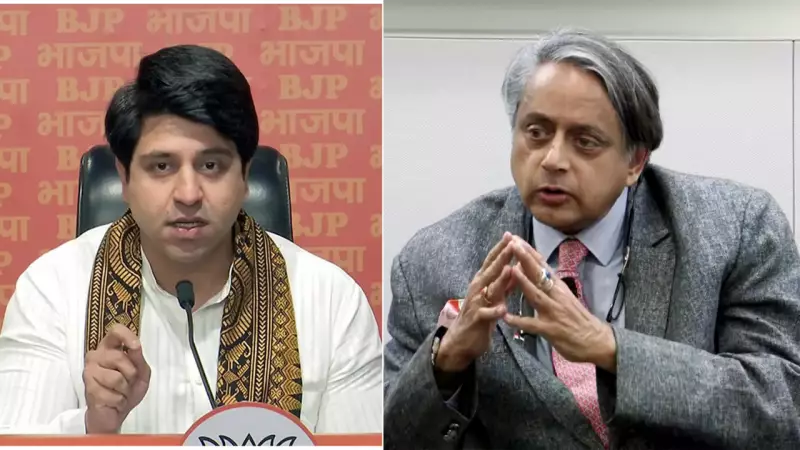
In a dramatic political development that has set off fireworks across party lines, Congress MP Shashi Tharoor's recent article critiquing dynastic politics has become the centerpiece of a major political storm, with the BJP enthusiastically embracing his views while his own party colleagues launch fierce counterattacks.
The Article That Shook Indian Politics
Tharoor's piece, which appeared in a prominent publication, offered a critical examination of family-dominated politics in India, arguing that meritocracy often takes a backseat to hereditary succession in many political parties. While not naming any specific party, the timing and context of the article immediately drew connections to the Congress party's leadership structure.
BJP's Victory Lap
The Bharatiya Janata Party quickly seized upon Tharoor's words, with several senior leaders hailing it as a bold and honest assessment from within the opposition ranks. BJP spokespersons described the article as "a moment of truth" and "courageous introspection" that validated their long-standing criticism of dynastic politics.
Union Minister Anurag Thakur led the charge, stating that Tharoor had merely articulated what the nation has known for decades about the Congress party's functioning. Other BJP leaders took to social media to amplify the message, creating a wave of political messaging around the article.
Congress Counterattack
The reaction from Tharoor's own party was swift and sharp. Congress leaders did not hold back in their criticism of their colleague's public musings, with some suggesting it amounted to "playing into the BJP's hands" during a crucial political period.
Senior Congress figures pointed to what they called the BJP's "selective amnesia" about political dynasties within their own ranks and allied parties. The counterattack highlighted several political families associated with BJP allies and state-level leaders to argue that the issue wasn't confined to any single party.
Tharoor's Clarification and Standing
Amid the growing controversy, Tharoor attempted to clarify that his article was meant as a broader philosophical discussion about Indian democracy rather than a direct criticism of his party. However, the political damage control came after the narrative had already been captured by opposing forces.
The episode highlights the ongoing tension within the Congress party between its established leadership structure and calls for greater internal democracy. Tharoor, who has previously contested for the party president position, has often positioned himself as a voice for reform and modernization within the party apparatus.
Political Implications
This controversy comes at a sensitive time in Indian politics, with opposition parties attempting to present a united front against the ruling BJP. The public airing of internal criticisms threatens to undermine opposition unity and provides fresh ammunition for political attacks.
Political analysts suggest that such public disagreements within opposition ranks could weaken their collective bargaining power while strengthening the BJP's narrative about opposition disarray and dysfunction.
As the political drama continues to unfold, all eyes remain on how this internal Congress disagreement will affect broader opposition dynamics and whether it will lead to any significant organizational changes within the party.






